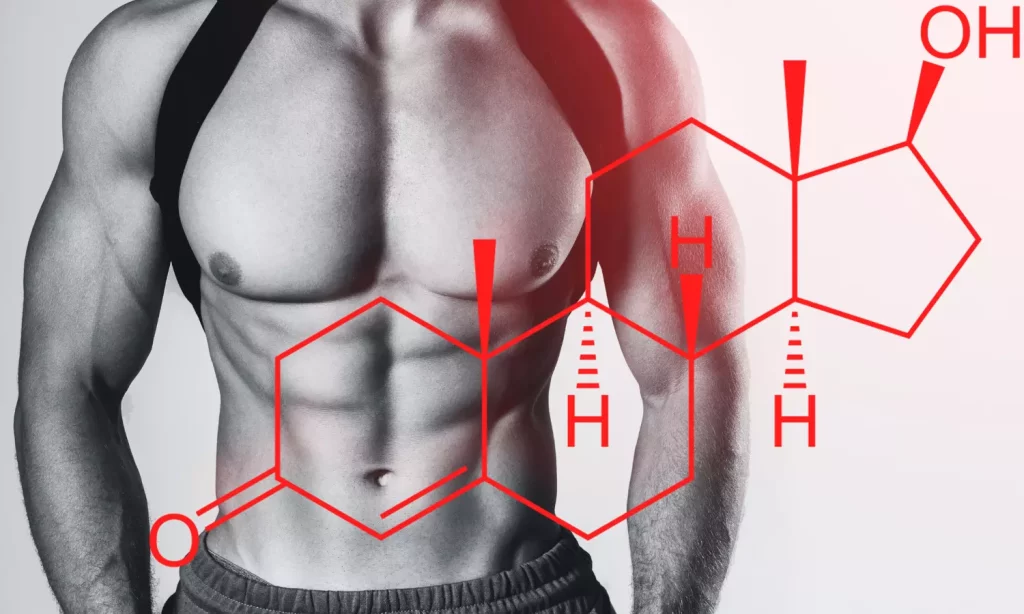 If you think that you might suffer from low T levels, or you have already been diagnosed, testosterone replacement therapy (TRT) can be helpful and can help you to restore your confidence by returning your levels back to the way they were. The good news, however, is that Testosterone Replacement Therapy (TRT) may be able to protect patients struggling with low T levels from chronic disease and negative health effects from the condition, while also improving their quality of life. A recent study involving 44,000 men with low T levels found that men using TRT to manage symptoms of low testosterone had a 33% lower risk of heart attack and stroke than those not receiving any hormone treatment.
If you think that you might suffer from low T levels, or you have already been diagnosed, testosterone replacement therapy (TRT) can be helpful and can help you to restore your confidence by returning your levels back to the way they were. The good news, however, is that Testosterone Replacement Therapy (TRT) may be able to protect patients struggling with low T levels from chronic disease and negative health effects from the condition, while also improving their quality of life. A recent study involving 44,000 men with low T levels found that men using TRT to manage symptoms of low testosterone had a 33% lower risk of heart attack and stroke than those not receiving any hormone treatment.
The FDA has approved testosterone replacement therapy for men who only have low testosterone levels because of conditions that cause hypogonadism. Only men who experience symptoms of low testosterone, with a low testosterone and blood levels confirming it as a reason for symptoms, should consider testosterone replacement at a TRT clinic Canada for improvement in symptoms.
Is TRT Therapy For Life?
Testosterone replacement therapy, whether administered in injections, pellets, patches, or gel, may improve signs and symptoms of low testosterone in older men. Testosterone therapy may help reverse the effects of a condition (hypogonadism), but it is not clear if testosterone therapy will benefit older men who are otherwise healthy. Low testosterone levels in men are frequently linked with blue moods, but testosterone therapy may offer an edge needed to combat symptoms associated with depression, irritability, stress, anxiety, and low self-esteem.
Unusually high or low levels of testosterone can have significant effects on mens mental and physical well-being. Tinkering with testosterone levels without guidance from a trained professional could lead to other health problems, like testicular atrophy, infertility, and increased risk for prostate cancer.
What Kind Of Doctor Do I See For TRT?
If other conditions or medications are causing low testosterone levels, doctors will typically treat the underlying conditions before they will recommend TRT. Studies have found no increased risk for prostate cancer in men taking testosterone, compared with men not taking it, but Charles Welliver notes that long-term effects of TRT on heart disease and prostate cancer require further study.
If you are suffering from abnormally low T, increasing testosterone levels through TRT may help to regain energy levels and sexual desire. If you do not have any health conditions contributing to a decrease in testosterone, your health care provider may recommend natural ways of increasing your testosterone, such as losing weight and increasing muscle through resistance training. Testosterone therapy is one of the best ways to return your hormones to their optimal levels and ease symptoms of hormonal imbalance.
Others recommend men should consider testosterone therapy if their total testosterone levels are below 500 ng/dL, or free testosterone levels are outside of an upper-third range in men aged 21-49.30 Of greater concern, Baillargeon and colleagues reported that 25% of all first-time androgen users had not had their testosterone levels measured within the 12 months prior to starting therapy. Recent clinical trials Researchers spent one year studying the effects of testosterone therapy on cognition, bone health, anemia, and cardiovascular health in 788 men aged 65 and older, who had low testosterone levels that could not be explained away by anything but their age.